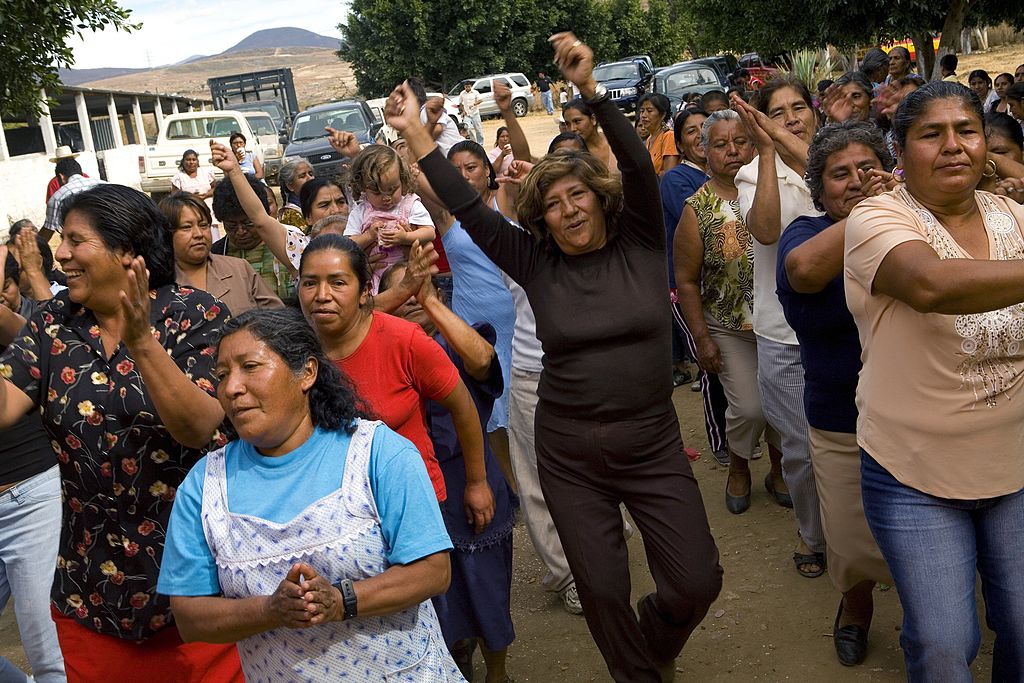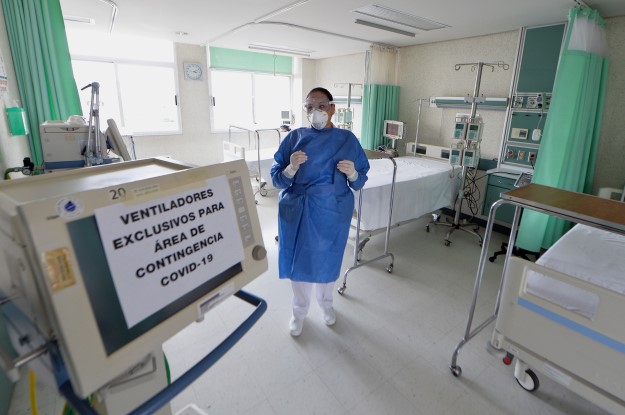BUENOS AIRES – In late March, as our country went into a state-imposed lockdown, Argentines across society mobilized on social media to locate Cristina Iglesias and her daughter, Ada, in the town of Monte Chingolo in the province of Buenos Aires. They had been quarantining in the house of Cristina’s partner, and family members had not heard from them since March 25. Three days later, the country’s worst fears were confirmed: Both women were found buried in the partner’s backyard. The police have already arrested the partner.
Sadly, home is not always a refuge for women across Latin America. Here in Argentina, seven out of ten femicides occur in the victim’s home. During this pandemic, many more women in the region will be sheltering under the same roof as their potential abusers. There are already signs that the shutdown of services, the absence of social engagement, and the effects of unemployment and economic distress on fragile masculinities and entire families are leading to a spike in domestic and gender-based violence. In Argentina, calls to domestic violence hotlines grew 40% after the government instituted a mandatory quarantine. In Mexico, they jumped 60% in the weeks after the government first called for social distancing. In Colombia, calls are up over 90%. But the pandemic is also laying bare what we already knew: That violence against women almost always happens out of society’s view, and stopping it requires intentional efforts to better track and make visible the extent of the problem.
Diverging practices in recording and prosecuting violence against women make it hard to get the full scope of the problem in Latin America. At least 3,529 women in the region were victims of femicide in 2018, or roughly one woman lost every two hours, according to the most recent data from the Economic Commission for Latin America and the Caribbean. The number is likely higher.
The need for good data on violence against women is clearly more pressing than ever. As the research director of the Latin American Initiative for Open Data (ILDA), I know that better data can help governments and organizations better understand the risks women face – in a pandemic or not – and then design better policies based on evidence. Unfortunately, the visibility of this crisis has not been accompanied by a significant improvement of the official registration systems of these incidents, which would allow societies and governments to make better decisions and generate public policies based on evidence.
Looking at existing legislation in Latin America, cohabitating and having an existing romantic relationship with the victim are the most recurring factors in classifying a woman’s murder as a femicide. But there are still at least 16 different and recurring criteria for identifying a femicide, and different countries also report this information differently. Honduras, Costa Rica and Panama, for example, all publish data on the geographic area of femicides, but only Honduras and Panama publish the type of weapon and only Honduras shares the occupation of the victim.
How can we expect better policies when the collective diagnosis of the problem remains unclear and/or limited? Since 2017, ILDA has been exploring how this data on femicide in Latin America can be produced in a more uniform and standardized way, thus helping authorities develop more informed public policies that protect women. ILDA has developed a standard for recording instances of femicide and has worked with governments of Argentina, Ecuador, Jamaica, Panama and Uruguay. Through these data standardization processes, public sector organizations are forced to think about what kind of data they need, how they collect it, how it is stored and, eventually, how to use it. Even though these processes might sound highly technical and even boring, data collection standards have led to quiet transformations inside public sector bureaucracies as public sector units have started to reflect on how they produce, store and publish this data. But the shutdown of societies during this pandemic has jeopardized this progress at a moment when women need the attention of policymakers as much as ever.
We’ve learned a number of lessons from our effort to standardize data on femicides, one being the importance of establishing institutional mechanisms that allow data to be available at different levels of access (for example from data to be publicly accessible to that which is collected but reserved). It is especially important to clearly identify who is speaking when communicating data and what mechanisms exist to validate the official data. This is particularly important when fake audio recordings and stories are populating our social networks and when different data and information are coming from diverse sources.
Broader implications
These standardization processes are critical not only for keeping women safe from abusers, but also for keeping everyone safe from the coronavirus. This virus’ rapid spread around the world has revealed that existing mechanisms for international cooperation and information-sharing are inefficient. What Latin America needs is quality, standardized and shareable data to be able to compare, determine and justify the drastic economic and social measures that governments are taking to curb the virus’ spread. The media also needs this to ensure people get accurate and up-to-date information on the development of the pandemic, with clear standards on best practices and on terms like infected, suspected case, transmission rate, and lethality.
Our experience working to standardize data collection on femicides has shown how essential quality data is to informing public policy. We still have a long way to go in terms of data quality and governance arrangements, but without some basic steps towards standardization it will only become more difficult to understand the current situation and devise evidence-based policies to advance our understanding and promote collaboration to find solutions to these severe problems.
—
Fumega is the research and policy director of the Latin American Initiative for Open Data







